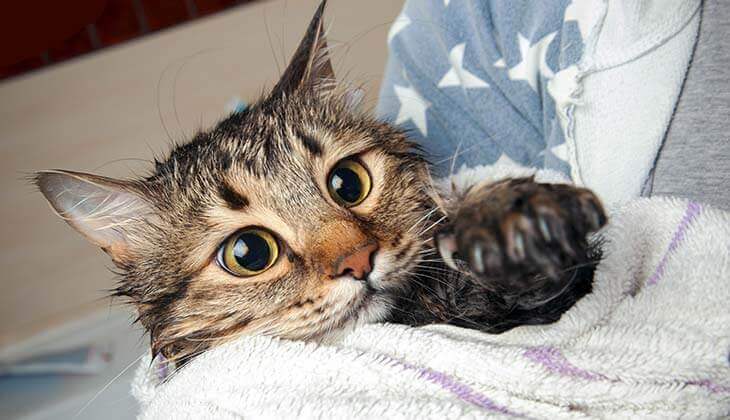Have you ever wondered why one cat may seem utterly comfortable in its surroundings while another seems unreasonably skittish? Many people chalk that up to the cat’s personality, but the answer may really lie in the way a cat has been socialised.

Socialisation is the process of preparing a cat for life so that it bonds with other animals and people. A well-socialised cat is confident, animated, friendly and trusting; a poorly socialised cat may be shy, fearful, or even aggressive.
A social cat is a happy cat. Socialising your cat is essential not only for you and your cat but also for anyone else your cat may encounter. Luckily, cat socialisation is not a mystery.
FOR BEST RESULTS, START EARLY
It is important to start socialising cats as early as possible. Kittens begin to learn how an adult cat behaves by observing their mother. They learn how to control biting and clawing by playing with their littermates. Neither their mother nor their littermates can teach a cat how to be handled by a human or how to acclimate to sounds, smells and sights—that’s your job.
Cat socialisation should start as early as possible. Kittens between 3 and 9 weeks of age are very receptive to new experiences—they don’t mind being handled and are open to new sounds and scents. This so-called “sensitive period” often extends up to 16 weeks but it is possible to socialise older cats, too.
Kittens usually start to be weaned from 4 weeks of age, and this is generally completed at 8-10 weeks old. At this point, they are ready to leave the litter and start taking cues from their new pet parent. Kittens aged from 3 to 16 weeks are in a prime period for learning life skills. This is the time to let your new kitten learn about everything from spending time in a carrier, to meeting different people.

HANDLE WITH CARE
Introduce your kitten to touch early so that it learns it has nothing to fear when in your arms. Keep your voice low and calm and your touch gentle and soft. It’s best to start just by petting your kitten on the head and back. When your cat is comfortable being touched in that way, pick it up gently and support it. It’s a good idea to touch your cat several times a day. Offer a treat each time as a reward for good behavior. If your cat becomes aggressive stop and leave it some space and time before trying again.
Gradually increase the length of contact, as well as the level of your interaction. Your cat will need to get used to being handled by a vet and to being groomed so make a point of making your cat comfortable being handled including touching its head, ears, and feet.
SLOWLY INTRODUCE A CARRIER
It is essential to help your new kitten become comfortable with a cat carrier. This will make trips, including trips to the veterinarian, much more manageable. To make travel easier for your new kitten, line the inside of the carrier with a thick towel. A few treats or a favorite toy at the far end can help. Bring your kitten to the carrier entrance and make sure it feels comfortable and can see and smell the treats.
Don’t close the carrier door; just let your kitten explore. Repeat this daily. When your kitten becomes comfortable in the carrier, close the door for a short time and give a reward when you open the door again. Repeat. Later, take your cat for a short ride in the carrier— perhaps on the bus, train, or car. It is imperative that you do not open the carrier when outside or during transport.

Welcome to the Pet Park
Explore the best content for your furry friend.
REMAIN POSITIVE AND PATIENT
Some cats need more time than others so stay positive as your cat begins to trust you. Continue to let your cat experience different sights, sounds, smells, and people, and reward your cat with praise and treats. Never yell or reprimand your cat for anti-social behavior, merely say, “NO,” and walk away.
The good news is that it’s not hard to do cat socialisation, you just need to make the commitment to interact daily. All little patience goes a very long way!
Read our article about cat facts to learn more about your cat.
Looking for a Vet?
Your veterinarian plays a big role in your pet’s health. Input your location information and get a list of veterinarians near you.
Find A Vet Near Me





 Go To United States
Go To United States Austria
Austria Belgium
Belgium Czech Republic
Czech Republic Denmark
Denmark Europe
Europe Finland
Finland France
France Germany
Germany Greece
Greece Hungary
Hungary Ireland
Ireland Israel
Israel Italy
Italy Netherlands
Netherlands Norway
Norway Poland
Poland Portugal
Portugal Romania
Romania Saudi Arabia
Saudi Arabia Slovakia
Slovakia South Africa
South Africa Spain
Spain Sweden
Sweden Switzerland
Switzerland Turkey
Turkey United Kingdom
United Kingdom